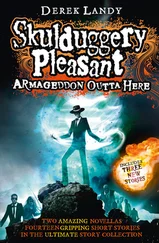Peter marched across the open area between the house and the barn. A gust of wind pushed him forward slightly, and then the sound of a door slamming frightened him. He was exposed, and his instincts forced him to one knee.
Then the door slammed again. Peter’s head was on a swivel as he looked for cover. The wind was suddenly blowing hard, and it chilled him to his core. He glanced to his right and discovered several ton bales sitting just behind the back of the house. Many years ago, older balers produced smaller square or rectangular bales. The modern balers produced large round bales known as ton bales. They didn’t necessarily weigh a ton, as most reached fifteen hundred pounds.
Regardless, they were Peter’s best source of ballistic protection at the moment. He rose to a low crouch and rushed across the yard before sliding to a stop behind the hay bales. He sat with his back to the hay as he gripped his weapon. He was closer to the house now and began to realize the sound of the door closing was rhythmic, not sporadic as if someone was coming or going from the house.
He rolled his eyes for letting his fear get the best of him. “It’s just the damned wind blowing a shutter or something, Pete. Get your ass up and check out the house.”
He did as instructed and rose to his feet. Still, he was alert as he rounded the ton bales to approach the back door. He held his gun in a shooter’s position directly at the door until he reached the first step leading to the back porch. A wood-framed screen door was the source of the slamming sound as it was pulled out and pushed inward by the wind gusts.
Peter wedged his body between the screen door and the Dutch door leading inside. He tried the knob and found it to be locked. He turned his pistol in his hand and gripped it by the muzzle. Then he gently tapped the glass window with the pistol grip until a part of the pane fell inward. He gently tapped out a couple more pieces and reached in to unlock the door.
Peter turned the handle and pushed it open, but he remained behind the wall. He held his breath and attempted to listen over the now howling wind. A strong gust hit the back of the two-story farmhouse with a broadside slam, causing dust to fall off the rafters of the porch roof. Peter kept his focus and listened for any signs of movement inside.
After a moment, he stepped into a hallway that was lined with bench seating and wooden pegs protruding from the walls. Some held horse tack, and others were covered with a variety of jackets. Rubber work boots were lined up under the bench seats, as were several pairs of well-worn tennis shoes.
It was dark now, and Peter had to risk using his flashlight to walk through the house. He retrieved it from his Velcro cargo pockets and pushed the rear button to power it on. He adopted the crossover grip he’d used effectively in the last several days to clear interior spaces and moved deeper into the farmhouse.
The first room he came to was the kitchen. He immediately noticed something odd about it. Nearly all of the wooden cupboard doors were open. And the shelves had been emptied. However, it did not appear to have been looted. The residents, or somebody, had picked the place clean without causing any damage or mess. Nothing was in disarray, including the small corner table sitting at the back of the kitchen. A recipe book was sitting open, and a single stem vase, complete with a dead flower, remained undisturbed.
He walked through the kitchen and entered the dining room. Like the kitchen, everything was in perfect order. The table was set. Chairs were pushed in. The china cabinet was still filled with family heirlooms.
To Peter, the place seemed to be abandoned. Yet something in his gut said to call out again.
“Hello! I mean you no harm. I just need a place to sleep for the night. Please show yourself so nobody gets scared and makes a mistake. Okay?”
Like before, nobody responded, but out of precaution, Peter continued to search the remainder of the house. He shuffled along the old plank flooring that had been installed when the home was built in the 1830s. With each step, the floor gave a little and squeaked where the planks were nailed to the floor joists.
After searching the upstairs, he entered the foyer and spun around, marveling at family photos adorning the walls. Whoever owned the home had relatives dating back to the Civil War. There were several photographs taken using the original wet-plate negatives that took nearly twenty seconds of exposure to generate an image.
Peter shined his light on each of the pictures as uniformed men cast their gaze upon him from above. He shuddered as he thought of the history of this old home. If only the walls could talk , he thought to himself.
Wednesday, October 30
U.S. Highway 50, East of Pueblo, Colorado
Owen was frustrated and angry with himself. He looked forward in dismay as steam billowed from under the hood of the Bronco. He’d been so careful about monitoring his gauges and took his eye off the ball for just a few minutes as the wildfires distracted him. If he’d been paying attention, he would’ve stopped miles back closer to Pueblo to allow the engine to cool. At least he could seek out help in the larger town than what he expected was in front of him.
“Where are we?” he asked with a sigh. It was now dark outside, which required Lacey to use her flashlight to read the map.
“When did we pass through Pueblo? Twenty, thirty minutes?”
“I don’t know,” Owen snapped back. He immediately felt bad for his tone of voice and apologized. “I’m sorry, honey. This is my fault. I wasn’t paying attention.”
Lacey set the map on the dashboard and turned toward her husband. She placed the flashlight under her chin, pointed upwards, just like we all did as kids to make a scary-looking face at Halloween.
“Look at me,” she said with her teeth bared menacingly.
Her attempt to turn her sweet face into something frightening failed in that respect. Otherwise, her ploy worked, and Owen immediately burst out laughing.
“You can’t be funny when I wanna be mad and frustrated.”
“Yes, I can.” She snarled and made other facial contortions.
“What are you? Five, six years old?”
“Maybe?” Lacey stuck her tongue out.
Owen threw his head back and let out a hearty laugh. Tucker, not unexpectedly for a teenager, didn’t find his parents so humorous.
“You guys are weird.”
Lacey started laughing and exchanged high fives with her beloved husband. The two then reached across the console to hug one another and kissed.
“Weirder and weirder,” mumbled Tucker as he sat in the back seat with his arms folded. “What are we gonna do?”
“Do we have a manual for this thing?” asked Lacey as she opened the glove box. She set the handgun on top of the map book and fumbled through the papers. Other than insurance information, registration, and half of her peanut butter and jelly sandwich she was saving for later, it was empty.
“No,” said Owen. His mood became dour again. “Honestly, I never thought I’d need one. I guess I could’ve bought one on eBay or someplace, but I never imagined I’d need it. It’s not like this truck has any bells and whistles on it.”
“Dad, shouldn’t we take a look? It could be something simple.”
“Tuck, I don’t know anything about cars. I never had that car gene that my friends had growing up. As long as I could turn the key and make it go, I was fine.”
Lacey had returned to the map. “Well, to answer your question, I think we’re right about here.” She pointed to a point on the map to the east of Pueblo near the Arkansas River that snaked along the north side of the highway. Owen leaned in to study the atlas. To give him some context, Lacey traced their route and then ran her finger along the highway toward the east.
Читать дальше












